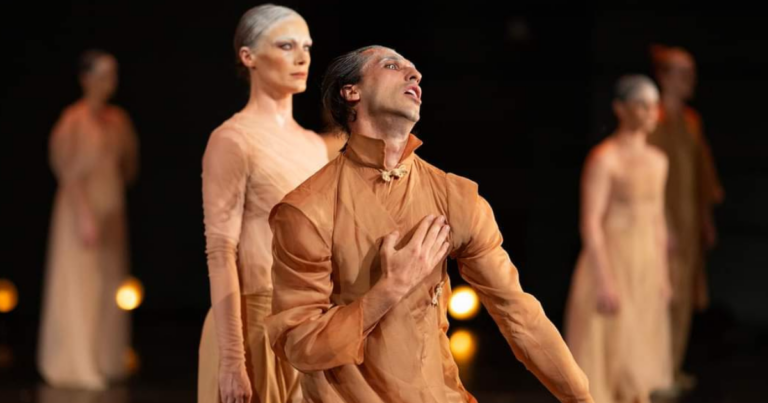The First Flower
Milot Gusia
Reflections on the album "First Flower" by the artist Astrit Ismaili
One of the bases of the artist Astrit Ismaili's manifesto is the criticism of the continuation of the dichotomous and binary functioning of contemporary society, which continues to reject the complexity of modern man and his nature, which is in constant transition.
Reflecting on all these states of transition and evolution that the new generation is going through, the artist turns to the science of botany to draw a parallel with the evolution of plant species.
The artist Ismaili and his generation, in order to find shelter, increasingly seek to explain and understand their identity. Therefore, they rely on plants and other evolved creatures to accommodate their changes.
Thus, they, like flowering plants, evolve to overcome their natural limitations. The transformation of plants into the first flowers is the basis of the artist's creativity, which he calls "Creation through Limitation".
In his utopian art, the artist Ismaili wants to create a heteronormative society, in which queer people and his generation can metaphorically develop freely. Artist Ismaili compares this utopian desire to the blossoming of a flower from a concrete.
Ismaili, born in Pristina during the war, grew up in a post-war environment where everything was rapidly transforming before his eyes. Witnessing the building of a new state made him aware of the power of the will in shaping identity.
During the shaping of the identity of the state of Kosovo, the younger generations, like Astriti, began to find refuge in music, but also humor and stories, which were places to dream, escape and imagine their personal identity. During all this time of his development in such an environment, the artist Ismaili always listened only to himself and his bodily instincts.
Astri Ismaili's musical debut, entitled “First Flower”, already represents an addition to the rather extensive and serious activity of this unique artist of the new generation. The work explores the theme of survival and flourishing through transformation. This time, Astrit Ismaili presents his work in the form of a musical album, even greater expanding his artistic expression, and at the same time broadening the collaboration with musical voices that popular culture tends to silence.
The artist Ismaili sees contemporary art as too elitist, which according to him should be changed. Through pop music, artist attempts to touch and speak to a marginalized audience that feels isolated and distant to elitist art.
The purpose of transforming the performance music onto a musical album was to enable his art to connect with an audience outside the confined spaces of art galleries. For the artist, it is important that his music captures the wider audience so that they leave with a piece of music in their minds and hearts.
Through this album, the artist Ismaili wanted to explain the queer phenomena that occur within the undisturbed botanical world. In the song "Queer Garden", among other things, the lyrics talk about the sexual fluidity of plants. For example, Avocado wood within a 36 hour period continuously transforms between female and male phases. During the day, it releases pollen flowers, while at night, it blooms with pollen-receptive buds.
Artist Ismaili claims that similar cases exist in nature for hundreds of thousands of years, while in our societies, whatever does not fit the patriarchal system is suppressed.
"The First Flower" continues to convey the artist's preoccupation with the story of the inauguration of the flowering process on earth, visually illustrating the flower's struggle for survival, growth and transformation, but also its sexual fluidity.
"This natural form of queer encountered in botany is completely different from our nature, where people with different orientations or queer to justify their existence must fight against multiple political frameworks" (Astrit Ismaili).
Through the hybrid voice of the genre hyper-pop and glam, Ismaili draws parallels between pop culture and botanical storytelling, thereby challenging issues such as beauty standards and gender dysphoria.
A song of the album that stands out with its voice is "Miss Kosovo" performed in collaboration with Mykki Blanco. This collaboration, along with other collaborations such as those with artist Lotic and Colin Self, symbolizes a form of unity between marginalized communities, and their shared efforts for recognition.
According to Ismail, in these harsh environments on the margins in which both the flowers and certain people of society grow, there is room for wonderful things to happen.
This album is taken from the performance “Miss”, which refers to three figures, First Flower, Cicciolina and Miss Kosovo. The album develops in a non-linear form through 7 songs and is distinguished by pronounced theatrical and performative elements.
The works on the album are collaborations with special artists. Lotic produced the music for "Fear of Death", a song about the transience of the life of flowers. Mykki Blanco worked on the song "Miss Kosovo", while Colin Self produced "Voices", a very personal song that talks about the artist's experiences with the war in Kosovo (Astrit Ismaili, 2024).
The well-known Albanian artist from Kosovo based in Amsterdam, Astrit Ismaili continues to dedicate his artistic projects to give a voice to the marginalized.
In 2020, he held an outdoor performance entitled "mon amour", which was intended to challenge the ongoing tensions in Kosovar society, as well as to confront conservative attitudes towards women.
He continues to create avant-garde art through new mediums such as body extensions, alter-egos and wearable instruments in order to expand the human body in today's contemporary world beyond anthropocentric norms and standards, thus questioning gender binaries, and differences between body and machine, natural and artificial.
With his performances at Manifesta 14 in Pristina, at the Stedelijk Museum in Amsterdam, and participation with the Miss Kosovo project in Brazil and Greece, both of these countries that have not recognized Kosovo's independence, the artist Ismaili has reached a high level in his career as a young artist. Access to these spaces has been a platform to push forward and engage in discourses about body politics and unacknowledged identities.
External Links:
- Metal Magazine – “In Bloom – Astrit Ismaili”. Linku:https://metalmagazine.eu/post/astrit-ismaili-in-bloom?fbclid=IwZXh0bgNhZW0CMTAAAR1eXHVLKasJVxIa2X_ZVwvuCCt3pWwrr3CVKJBVEDk8Y20sF5k9K3xR6cc_aem_AX9DwRvRIxgKJ1K9LAOb7pTbalpZ97cYAmEC0dbkwrKobVdvIA72fpp8mm1mVsC301uvbvgWt9EUv4qXUQOn_S-a
- Pw Magazine – Astrit Ismaili – In bloom into Flowers. Linku: https://pw-magazine.com/2021/astrit-ismaili-bloom-into-flowers

About the author
Milot Gusia works as a professor and editor, as well as a critic in the local and international art scene. He has worked on a number of programs in the field of art and culture.
He completed his master's studies in Graphic Design at the University of Pristina, as well as his MBA studies at Staffordshire University, Great Britain.




